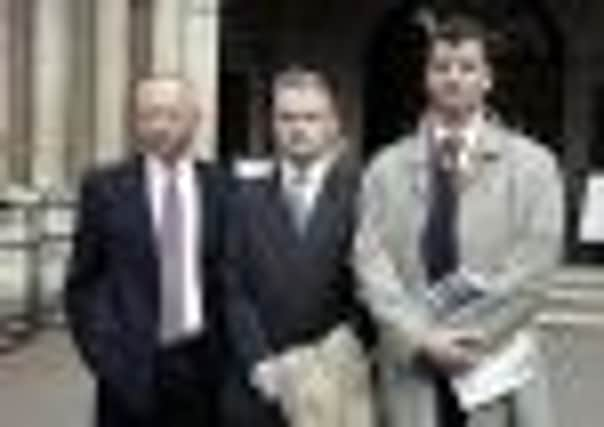Book review: Gang of One


He is better known in this country as one of the gang of three accused of defrauding the NatWest bank through a business in the Cayman Islands. Their actions were said to have undermined Enron, whose collapse led to serious hardship amongst its investors and a thirst in the United States for revenge. Was he a crook or a fall-guy?
The US sought the NatWest Three’s extradition, even though under UK law they had not committed a crime. A high-profile campaign against their extradition ended with a deal done directly between George W Bush and Tony Blair. This is the story of Mulgrew’s time in the Texas jail.
Advertisement
Hide AdAdvertisement
Hide AdMulgrew grew up in Glasgow, “doing time” as he puts it in Pollok which, he claims, helped develop the survival skills needed in Big Spring. Telling his fellow inmates that he came from Pollok gave him an advantage because they thought he had been transferred from Pollock prison in Louisiana. It was tough in jail, but then, what would you expect? He was a criminal – or was he?
The book is challenging because it invites the reader to make a decision about Mulgrew. On the one hand, he has had more than his fair share of hardships and he uses these to get sympathy. As a youngster he and his brothers spent two years in a children’s home when his mother was unable to cope and he was not well treated there. Back home, he had the choice of joining the local gangs or, as he did, sticking in at school and making it to university.
On top of all this, his marriage broke up and his wife disappeared with his daughter. He has been hiring lawyers and investigators ever since to try to find her and this problem was hanging over him at the same time as lawyers were trying to keep him out of jail. When he went to face charges and imprisonment in America, he left his ten-year-old son in the care of his partner. He describes taking leave of his son very movingly. All that puts the reader on his side.
The other possibility is that he was a criminal getting the punishment he deserved. He did, after all, eventually admit guilt in order, he says, to reduce his sentence after extradition and receive earlier release. The closest Mulgrew comes to an admission of fault let alone guilt is “My actions hadn’t passed the morality test” and that he was “making a negative contribution to society”.
The book raises other issues. One is the conditions in the US jail where his life and welfare were in jeopardy – hence his choice to be a Gang of One rather than take sides. Not that it was all bad. He saw “a lot more dignity and pride and care there than I’d seen in many other walks of life.”
The fairness of the extradition arrangements with the US has been aired in other cases. Then there is the debate about whether locking him up in a room with 81 other inmates was a fitting punishment for someone who had never physically harmed anyone and who was clearly very talented. Could his undoubted skills not have been used for public benefit instead?
If this were fiction, it would be a good read. It would even make a good film, so it is no surprise to find out that film rights have already been sold. Yet it is a factual tale of childhood hardship, an unlikely rise to university, a career making millions, devastating family circumstances, imprisonment and survival. If it challenges our accepted views about finance and justice, so much the better.
• GANG OF ONE
By Gary Mulgrew
Hodder & Stoughton, 338pp, £16.99